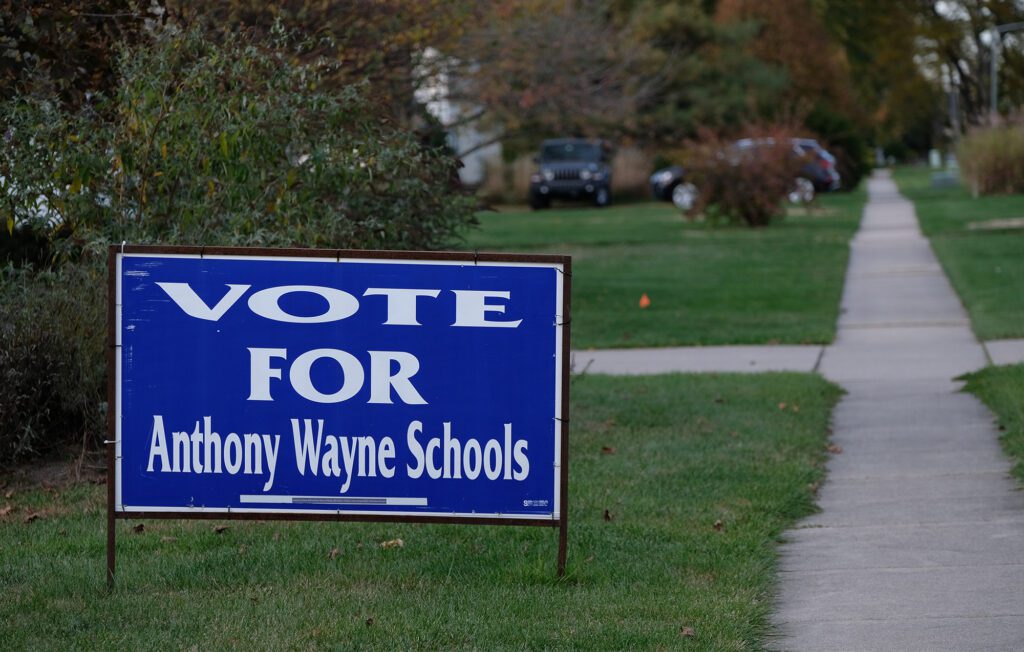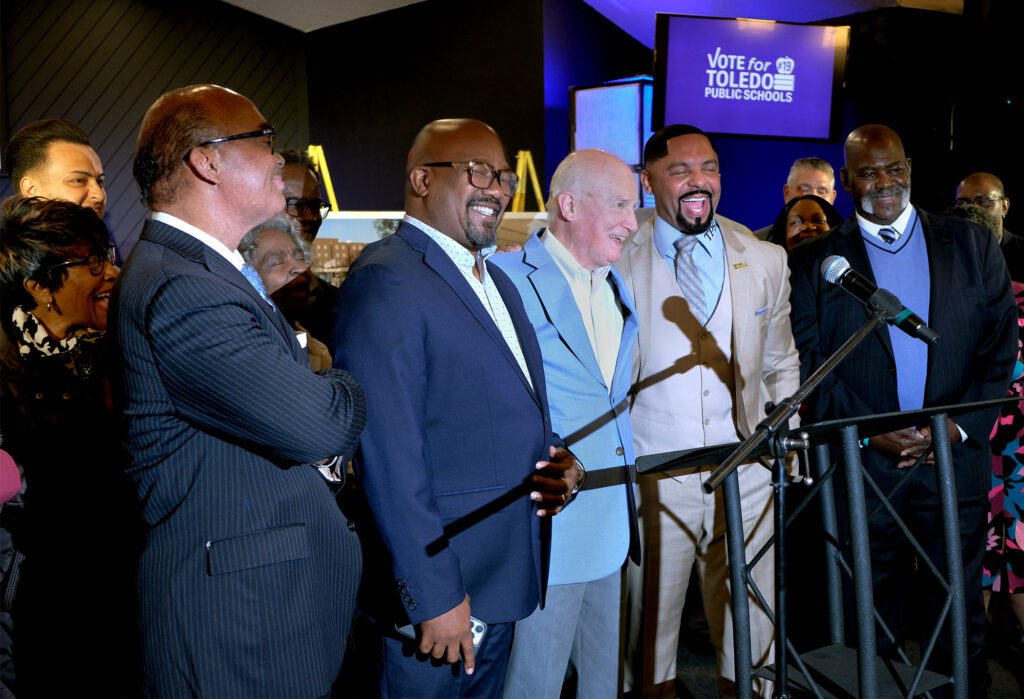School levies of primary concern this election
Although much of the election focus – positive and negative – has been directed at local candidates and issues, regional school districts also have had their fair share of contentiousness.
Districts cite rising costs and student population growth as reasons for coming to voters for more money.
One of the most heated levy requests is in the Perrysburg Exempted Village School District, where voters are being asked to support an eight-year incremental operating levy. It will replace a current levy that is set to expire.
The ballot language reads, in part, “The tax will be levied in 2024 to raise $13.5 million. In the seven following years, the tax will increase by not more than $2 million each year so that during 2031, the tax will raise approximately $27.5 million.”
The Wood County auditor’s office estimates the rate will be 9.73 mills or $341 for each $100,000 of appraised value in 2024 and will increase to $693 per $100,000 valuation in 2031.
Proponents of the levy point out that as the community grows, less millage will be needed to collect the set dollar amount. In the last year of an expiring 2019 levy, the cost to a homeowner was 69 percent of what it originally was.
Perrysburg school officials also note that the bond debt for construction of Perrysburg High School ends in collection year 2025, leading to the retirement of 1.85 mills, or a tax reduction of $5.39 per month based on a $100,000 home.

Across the Maumee River in Lucas County, Perrysburg’s sports rival, Anthony Wayne School District is seeking support for a five-year, 2.42-mill operating levy, which will generate $3.3 million annually. If approved, it will cost the owner of a $100,000 home $85 annually.
Unlike Perrysburg, the district is in a somewhat unique position. Should voters not approve the levy, their property tax will increase anyway because the state constitution requires a minimum of 20-mills to be collected to fund districts.
The new Lucas County auditor’s office property appraisals are projected to drop the district below that 20-mill threshold.
As a result, should the issue fail, the millage would drop to 16.9 mills and, under Ohio law, residential and agricultural property owners will be required to pay the 3.1 mills to meet the minimum threshold.
If the Anthony Wayne levy passes, the rate will still fall, but only to 19.4 mills, and the approved millage will be shared by residential and agricultural property owners as well as commercial and industrial properties.
The remaining 0.6 mills will be assessed to residential/agricultural property owners.
Anthony Wayne voters last approved an operating levy in 2013.

Other districts with a levies on the ballot are Gibsonburg Exempted Village. The district is asking for a 1 mill renewal with an additional 1 mill at a cost of $46 annually based on $100,000 valuation; and Bowling Green City Schools, asking for a 0.75 percent income tax for a continuing period beginning January 1, 2025.
In addition, other Lucas County school districts on the ballot are Springfield Local Schools, seeking renewal of a $3.9 million, 10-year operating levy, and Toledo Public Schools.
TPS is asking voter approval of a bond issue for construction and renovation of district buildings. The $99 million, paid over 30 years, is for 2 mills, costing the owner of a $100,00 home $71 per year.
“For those out there asking, ‘Do we need this?’ Yes,” exclaimed former Toledo mayor Carty Finkbeiner, who was among dozens of supporters of Issue 19 who attended a press conference at The Tabernacle on Oct. 24.
“We can’t say that children are number one in our lives unless we help those children get the education and the training that two or three of us here got at Nathan Hale (TPS elementary school),” Finkbeiner said. “We got to get the job done.”
Former mayor Mike Bell then stepped up to the podium and proclaimed that he is TPS proud. “What this is about – and it’s real basic – this is about investment. This is about investing in kids. This is about trying to turn the direction of a whole community in a very positive way.
“I can tell you that if I wasn’t TPS proud, I wouldn’t have been able to do the things that I was able to do,” Bell said.
“So, this is all about our future. When people start worrying about the numbers, and its real minimal as for what they get in return, we need to think about the investment, think about these kids, and what our future is going to be,” Bell continued.
“If we don’t do this, we are still going to be paying for it .. but paying for it in a negative way as compared to a positive way,” he warned. “We have all of these people here who care for kids. Let’s just move forward and get Issue 19 passed.”














